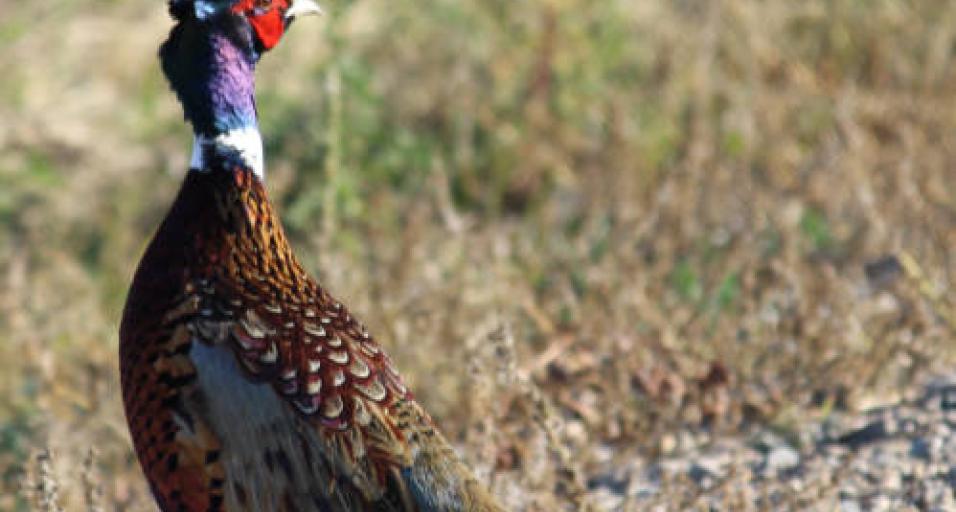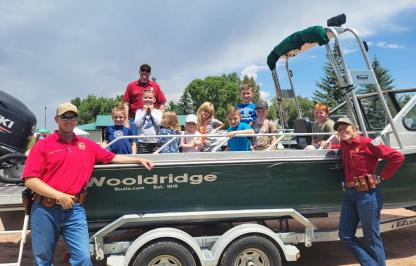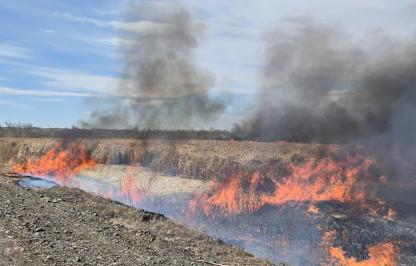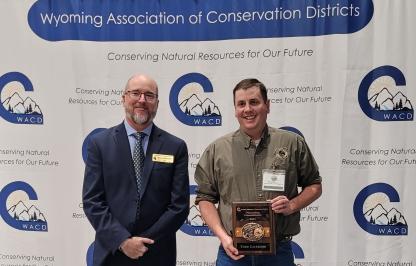Dawn is the best time to listen for the distinct kaa-caw of a male pheasant at the Yellowtail Wildlife Habitat Management Area. Since 1969, biologists and other Wyoming Game and Fish Department members rise with the sun once every 12 weeks beginning in the late spring to listen for the crowing sounds of a small naturally-reproducing pheasant population — one of the only surveys of wild birds conducted in the state.
“Game and Fish has counted pheasant crowing in late-spring at Yellowtail since first stocking birds to see how many survived the winter,” said Game and Fish Greybull biologist Leslie Schreiber. “And now the data shows there is small population of naturally reproducing pheasants.”
The ritualistic 12-stop survey follows the same route as it did in the late ’60s, ensuring collection of consistent data. But, the numbers still document a cyclical rise and fall in the wild population. During the peak week in 2018, surveyors heard 93 crows, fewer than in 2015 when crows were as high as 177.
Why fewer crows now? Schreiber says weather can impact hatching chicks, and the spring of 2016 took a toll on birds which contributed to already-waning populations. Newly-hatched chicks can die of exposure in cold and wet weather or drought if they can’t get enough to eat. Typically, only 2 to 3 percent of stocked pheasants survive the winter to potentially reproduce in the spring. But, even a modest survival rate is of interest to Game and Fish.
“Our goal was not to set up wild populations, it just sort of happened,” Schreiber said. “But, because they exist we monitor their population for the future.”
The current downward population trend for wild pheasants at Yellowtail does not mean hunting will suffer. Yellowtail is stocked with farm-raised birds from the nearby Game and Fish Sheridan Bird Farm annually, so it is still a rewarding place to hunt in the fall. The Game and Fish property near Lovell has 19,214 acres of prime pheasant habitat, which is the primary reason the farm-raised birds have successfully rooted there.
Game and Fish staff rise at dawn to count wild pheasant cackles near Lovell
Sara DiRienzo (307-777-4540)




